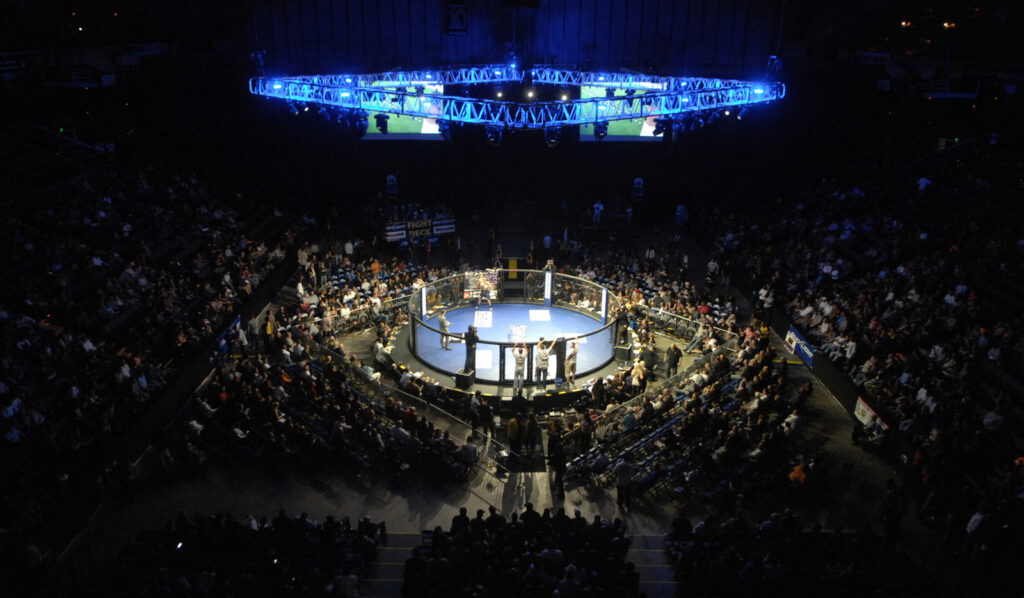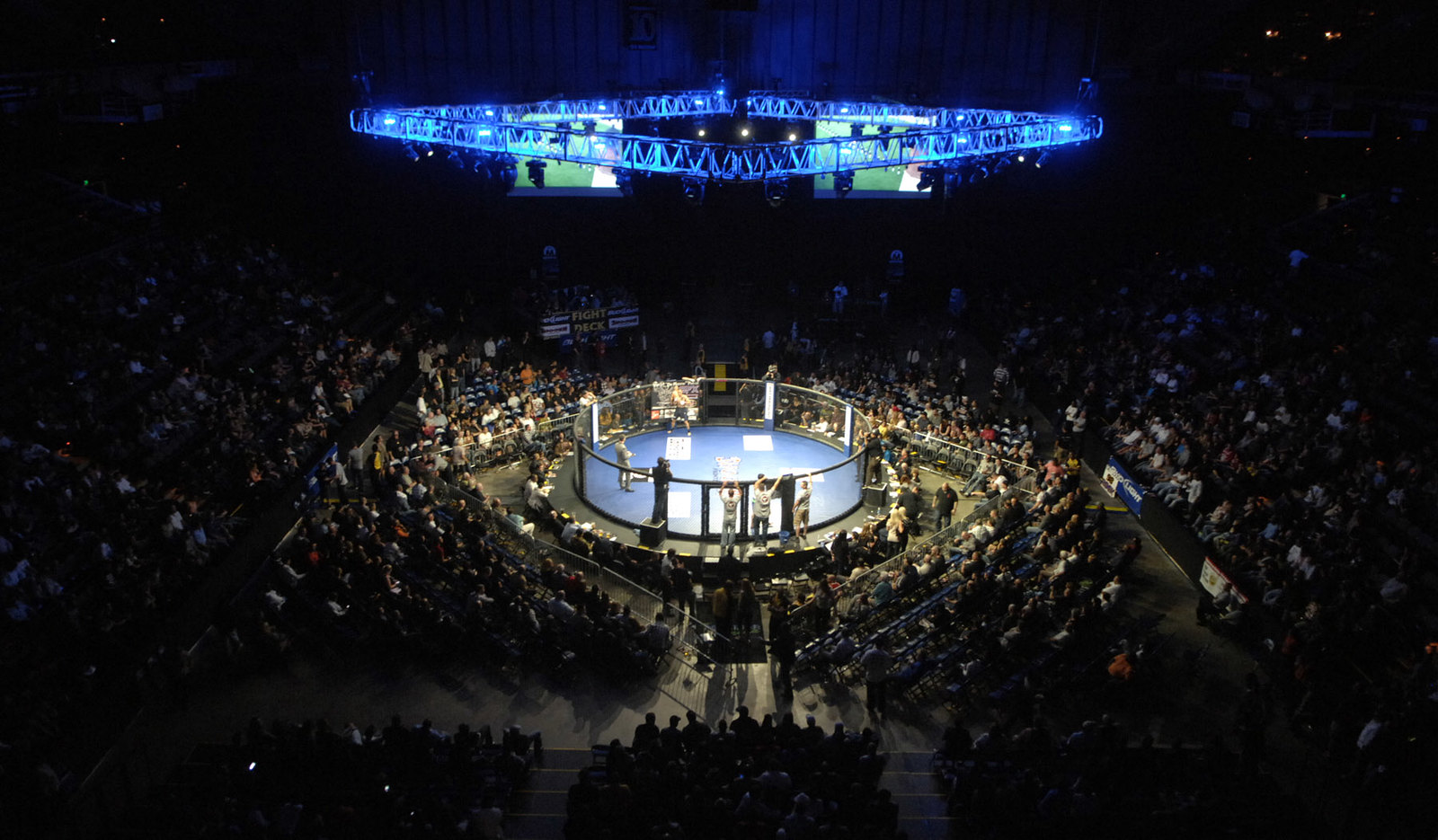When most fighters start the journey to the ultimate dream of becoming a world champion, their eyes are set on the big stage, yet their minds and bodies are thinking local shows. This is perfectly understandable, as most have been cage fighters from high school days and were never meant to progress professionally.
Amateur fights offer shooters, grapplers, and strikers a chance to be sanctioned in one of these sports. In fact, almost anyone can start up an amateur MMA show. But once you hit the professional level it is not only your skill and ability that can elevate you above your opponents, but also your character and personality. It is not uncommon for many fighters aiming for pro success to run into competition issues at amateur events. The scene is changing in respect to rules, judges, athletic commissions and scoring systems which makes it difficult to explain how to progress from amateur fights to pro events.


Amateur and Professional MMA
Amateur MMA is where the vast majority of fighters start their careers. Amateur fights are very similar to professional bouts, with the two main differences being that they’re shorter and they don’t pay fighters by way of prize money or contracts.
Professional MMA is what many people think of when they hear “Mixed Martial Arts”; it’s what we see on TV at night, in our local arenas or on pay-per-view (PPV). Professional bouts are longer than amateur contests, sometimes lasting up to five rounds instead of three or four. They also have referee stoppages and judges scoring fights based on criteria like effective striking and grappling techniques used in competition rather than solely awarding points for takedowns or achieved during rounds.
Lastly, amateur MMA helps you get noticed by professional organizations so they can sign you as a competitor once you prove your worthiness as an athlete by winning consistently against other fighters who are also trying make their name in the sport!


A brief history of Amateur MMA
Amateur MMA is the basis of all professional MMA, and amateur fighters compete in amateur fights to prepare themselves for professional competition. While there are many differences between an amateur fight and a professional fight, there are also some similarities. Amateur fighters often wear protective gear (such as gloves) when they compete, although these can vary depending on the rules of each event and region.
In addition to safety concerns, it’s important to note that amateurs don’t usually receive compensation for their participation in these events—they’re not “paid” directly by any organization or company; instead, if you win an amateur tournament or other competition then you’ll receive a prize such as money or goods from sponsors who have agreed to provide such rewards as part of their sponsorship deal with your team/club/gym/etc.
The Road to Professional MMA
The road to becoming a professional MMA fighter is a very long road. It takes years of hard work and patience, but the rewards are worth it. To become a professional fighter, you will need to commit yourself to developing your skills and perfecting them until they are well-rounded. You’ll also want to spend time working on your conditioning so that you can last longer in the cage with an opponent who has been training their entire life for this moment—and who may be quite dangerous! Most people will probably spend at least five or six years trying different promotions and rosters before finally landing one where they feel comfortable fighting regularly.


Testing the waters – the need for amateur competition
One of the best ways to get your feet wet is to compete in amateur MMA, or “amateur Muay Thai” fights. These matches are held under rules that are similar (but not identical) to those used by professional fighters, and they allow you to test out your skills while gaining feedback from opponents who are at a similar level as yourself.
Amateur competitions also provide an opportunity for athletes to figure out which weight class they feel most comfortable in. It’s important that you find this out before moving up into professional competition—you don’t want to find yourself stuck with an opponent who has a significant size advantage over you! This is especially true if your goal is eventually going pro; if so then it’s necessary that you start off getting used to fighting at weights lower than what most pros fight at nowadays – this allows more room for growth later down the line when trying out different weight classes within MMA itself (such as Featherweight).
Additionally, it will give newbies some idea about how their styles work against other styles – hopefully helping them improve upon their own techniques through practice/experience.”
Transitioning from amateur to pro requires patience – now more than ever.
Many amateurs are under the impression that they can just walk into an organization, fight a couple of times, and then get paid to fight. The truth is that when you go pro, it is no longer about you; it’s about the company and their bottom line. You need to be ready for this because there will be times where you have to take fights against opponents who aren’t ideal or possibly even lose a fight in order for your career as a fighter to continue on its upward trajectory.
It would be nice if every fighter had sponsors lining up at their door but unfortunately that just isn’t reality in MMA today. One thing people learn during their own time as an amateur was how much more difficult it was becoming each year to earn any kind of money fighting at this level due to promotions closing down or folding altogether. This means no competition which means no opportunity for us fighters until something new opens up somewhere else (and sometimes even then the opportunities are slim).


Going from amateur to professional in MMA is a long journey, for any aspiring young fighter.
Getting into professional MMA is a long journey, for any aspiring young fighter. The first thing you should do is train hard and learn the basics of fighting. This will help you gain experience, which will lead to more wins than losses. Once you’ve built up a good record as an amateur (and then in smaller fights), it’s time to get yourself insured!
Get in touch with us today if you’d like some tips on how to proceed from here.

